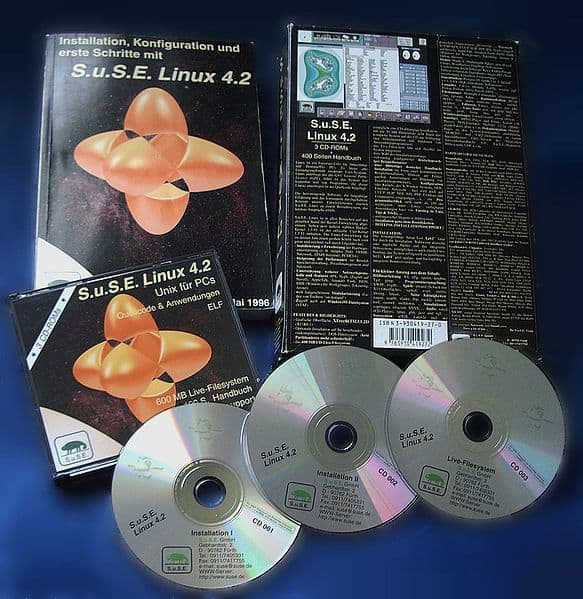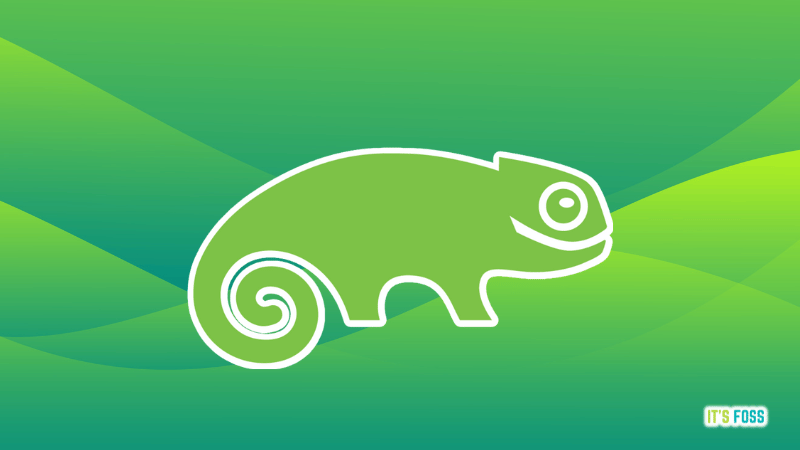
SUSE Linux does not need an introduction. A dominant player in the enterprise Linux market, SUSE is also known for its contribution to the community in the form of openSUSE.
Whether you know about SUSE Linux or openSUSE, let me highlight some interesting facts.
1. SUSE's Origin
In the beginning, SUSE was not exactly a Linux distribution.
The project was founded on 2nd September 1992 by three German students, Roland Dyroff, Thomas Fehr, Burchard Steinbild, and Hubert Mantel, mainly as a service provider offering technical assistance, Linux manuals, and releasing software packages.
They provided packages for Softlanding Linux System (SLS) and Slackware.
SLS was developed by Peter MacDonald in August 1992 and Patrick Volkerding released Slackware in 1993.
2. SUSE's Name
Technically, the project started by the German students was called Gesellschaft für Software- und Systementwicklung (Company for Software and System Development, in English)
The German version was shortened to "S.u.S.E" but the full name was never used. It was then shortned further to "SuSE" in October 1998.
Next, it was rebranded to "SUSE" (all uppercase) in 2003.
3. SUSE Was Slackware's German Version at its Core
While the project started by SUSE creators did not have a Linux distribution initially, they collaborated with Patrick (Slackware's creator) to translate Slackware into German.
And, this paved the way for the first release of S.u.S.E Linux 1.0 distribution in 1994.
4. The First SUSE Linux 4.2 Release
The first ‘real’ SUSE Linux was released in 1996. It was based on Jurix distribution (now defunct). This release was named S.u.S.E Linux 4.2, considering it was not rebranded back then.

The release number 4.2 was actually a reference to number 42 in Hitchhiker’s Guide to Linux, meaning the answer to life, the universe and everything.
5. Who Owns SUSE Linux?
SUSE Linux has seen several owners so far. In 2001, SUSE Linux started struggling financially. This resulted in the US based Novell acquiring SuSE Linux for $210 million in the year 2004.
Novell was later acquired by The Attachmate Group in 2010 for $2.2 billion. However, The Attachmate Group couldn’t survive for long and it was acquired by Micro Focus group in 2014 for $1.2 billion.
6. SUSE Linux to OpenSUSE
The releases afterward continued in incremental order until openSUSE was released in 2004, and further divided into openSUSE Leap and Tumbleweed.
While Tumbleweed is rolling release and hence has no version number, openSUSE Leap releases are versioned 15.x and so on at the time of updating this article.
7. SUSE Linux Started Accepting Community Contributions in 2004
Although SUSE Linux was open source from the beginning, Novell created openSUSE in 2004 as the ‘open source community version’ of SUSE Linux and started accepted changes from the community developers.
Before this, all the work on SUSE was done by the in-house developers.
8. SUSE's Mascot is Geeko
The official logo and mascot of SUSE is a chameleon officially named, “Geeko”. Geeko derives its name from Gecko (a type of lizard/chameleon) and geek.

9. openSUSE Codename Game Was Dropped
For some years, openSUSE tried to code name its releases based on different shades of green color. Thus you had openSUSE released named Teal, Emerald etc. Prolonged releases were called evergreen.
This was changed in 2015 when openSUSE resurrected into Leap and Tumbleweed and the versioning changed to 42.X. SUSE Linux releases don’t have a codename anymore.
10. SUSE Got Musical Talent
SUSE Linux has released Linux parody videos of popular songs for the last few years.
One of my all-time favorites is the Linux version of Uptown Funk:
And they have been doing this for years now:
You will probably be hooked to these songs compared to the original one. Don't you think?
I hope you found these SUSE Linux facts interesting.
💬 If you have other interesting facts to add to this list, feel free to mention it in the comment section below.

